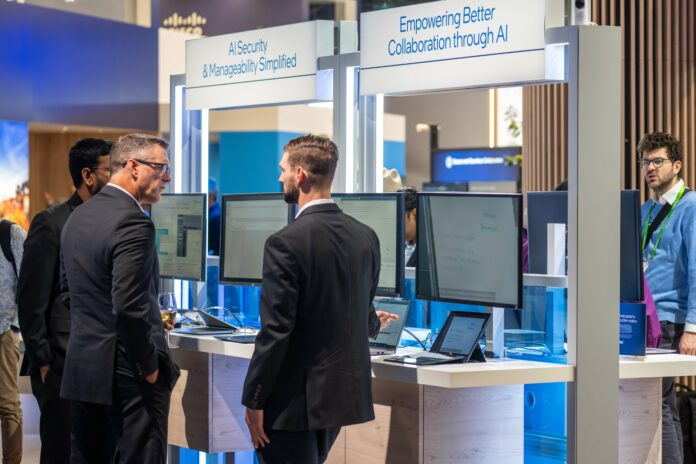
Intel unveils commercial Intel Core Ultra processors with NPUs for AI acceleration at MWC Barcelona 2024, promising productivity gains and enhanced security. (Intel Corporation)
Intel has just unveiled its latest commercial line of Intel Core Ultra processors, featuring NPUs (neural processing units) to boost artificial intelligence (AI) capabilities at MWC Barcelona 2024. These processors, which were first announced for consumers in December, come with the new Intel vPro platform, promising productivity enhancements, improved security, and new manageability features.
According to a press release from Intel, this year, partners such as Acer, ASUS, Dell Technologies, Dynabook, Fujitsu, HP, Lenovo, LG, Microsoft Surface, NEC, Panasonic, Samsung, and VAIO will introduce over 100 notebook, 2-in-1, entry, and workstation designs utilizing this technology.
During a briefing, Jen Larsen, the general manager of commercial segments at Intel, highlighted the significant improvements users can expect. These include up to 47% better productivity with office applications compared to a three-year-old PC, up to 36% less processor power consumption for video conferencing, and up to 2.2 times better AI performance for video editing.
Carla Rodriguez, the vice president and general manager of the client software ecosystem, added that Intel has been collaborating with the application software ecosystem to optimize performance further. This includes working with platforms like Teams and Zoom to enhance collaboration experiences, such as background blur and noise cancellation.
On the security front, Intel has integrated its threat detection technology with the NPU to improve performance while reducing power consumption. For example, a new Intel Silicon Security Engine authenticates system firmware. Larsen mentioned that Intel has enabled some ISVs (independent software vendors) to utilize the NPU, but not in isolation.
Intel's vPro platform also emphasizes manageability, with new features to help IT departments manage their fleets. These include Intel Device Discovery, a new way for cloud-based tools to receive necessary information for actions on a given PC, and Intel Device Health with VMware and Eclypsium, which provides visibility into fleet patching requirements and end-to-end device management.
Intel continues to invest in hardware-based remote management, both for on-premises solutions leveraging endpoint management technology and cloud-native offerings like VMware Workspace ONE.















